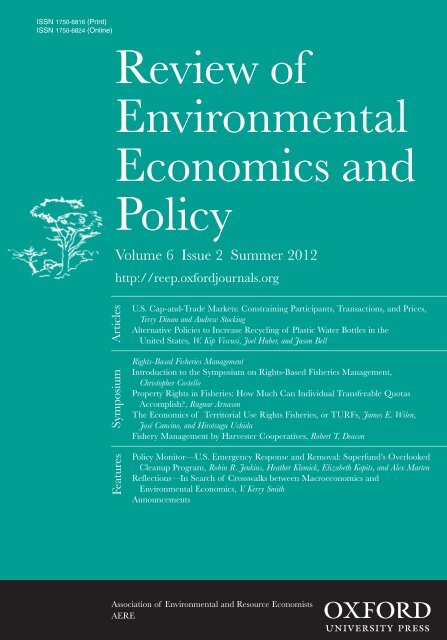“海产品”体系:水产食品、食品安全和全球南方
IF 6.6
3区 经济学
Q1 ECONOMICS
引用次数: 15
摘要
全球海产品系统包括三个相互关联的部门:商业捕捞(或野生捕捞)渔业、休闲和自给渔业以及水产养殖(或养殖海产品)。本次研讨会的三篇以部门为重点的文章审查了部门内部和部门之间以及海产品系统与更广泛的自然环境之间的生产外部性。基于这些文章的见解,我们将海鲜作为综合食品系统的一部分进行讨论,并研究海鲜的供需。我们评估了环境可持续性和粮食安全之间可能存在的紧张关系,重点是全球南方。我们研究了市场机制在用户群体之间分配资源的不一致应用;强调在全球南方尤其明显的治理挑战;探讨海产品生产中的温饱扶贫作用;确定需求异质性的来源,这对了解海产品的未来至关重要,包括文化的影响;并从经济角度评估对国际海产品贸易的担忧。我们将详细讨论营养安全,重点关注产品属性,如内在捆绑(不可单独购买)的微量和宏量营养素如何加剧不平等和/或导致营养外部性。最后,我们确定了未来研究、技术创新和治理创新的需求。本文章由计算机程序翻译,如有差异,请以英文原文为准。
The “Seafood” System: Aquatic Foods, Food Security, and the Global South
The global seafood system includes three interconnected sectors: commercial capture (or wild-caught) fisheries, recreational and subsistence fisheries, and aquaculture (or farmed seafood). The three sector-focused articles in this symposium review production externalities within and between sectors and between the seafood system and the broader natural environment. Building on the insights from these articles, we discuss seafood as part of an integrated food system and examine both seafood supply and demand. We assess possible tensions between environmental sustainability and food security with an emphasis on the Global South. We examine the inconsistent application of market mechanisms to allocate resources across user groups; highlight governance challenges that are especially pronounced in the Global South; discuss the role of subsistence and poverty alleviation in seafood production; identify sources of demand heterogeneity that are critical to understanding the future of seafood, including the impact of culture; and evaluate concerns about the international seafood trade through an economic lens. We discuss nutritional security in detail, focusing on how product attributes such as micro- and macronutrients that are intrinsically bundled (not purchasable separately) could exacerbate inequality and/or lead to nutritional externalities. We conclude by identifying needs for future research, technological innovation, and governance innovation.
求助全文
通过发布文献求助,成功后即可免费获取论文全文。
去求助
来源期刊
CiteScore
10.80
自引率
0.00%
发文量
25
期刊介绍:
The Review of Environmental Economics and Policy fills the gap between traditional academic journals and the general interest press by providing a widely accessible yet scholarly source for the latest thinking on environmental economics and related policy. The Review publishes symposia, articles, and regular features that contribute to one or more of the following goals: •to identify and synthesize lessons learned from recent and ongoing environmental economics research; •to provide economic analysis of environmental policy issues; •to promote the sharing of ideas and perspectives among the various sub-fields of environmental economics;

 求助内容:
求助内容: 应助结果提醒方式:
应助结果提醒方式:


